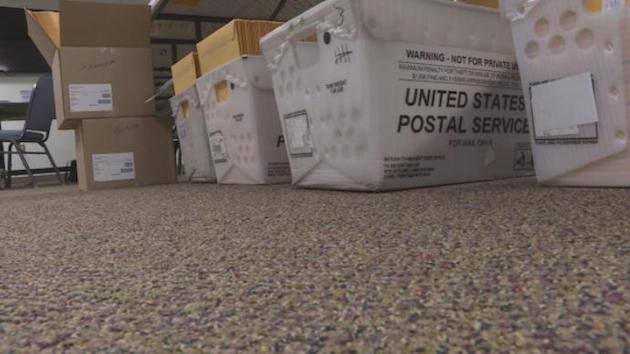The Supreme Court on Tuesday vacated an appeals court decision that required Pennsylvania to count mail-in ballots even if there is no date on the envelope.
“The judgment is vacated, and the case is remanded to the United States Court of Appeals for the Third Circuit with instructions to dismiss the case as moot,” wrote Justices Sonia Sotomayor and Ketanji Brown Jackson (pdf), siding with David Ritter, an unsuccessful Republican candidate for a judgeship.
They also threw out a U.S. 3rd Circuit Court of Appeals’ ruling that allowed the counting of mail-in ballots in the race that Ritter had sought to remove because voters did not write the date on the ballots. Ritter lost his 2021 bid to serve on the Lehigh County Court of Common Pleas after 257 mail-in ballots that didn’t have dates were counted.
Implications for 2022
Pennsylvania Republican legislators and conservatives filed amicus briefs saying the 3rd Circuit’s ruling threatened the integrity of the 2022 midterm elections.
But the Supreme Court’s action on Tuesday means that the 3rd Circuit ruling cannot be used as a precedent in the three states covered by this regional federal appellate court—Pennsylvania, New Jersey, and Delaware—to allow the counting of ballots with minor flaws such as the voter failing to fill in the date. Vacating the ruling does not change Ritter’s loss in his race.
Earlier this year, the Supreme Court denied Ritter’s attempt to block the counting of ballots that lacked dates. Justices Clarence Thomas, Samuel Alito, and Neil Gorsuch dissented. Days before that (pdf), a panel on the 3rd Circuit ordered the counting of the undated ballots.
Alito had written that the lower court’s ruling “could well affect the outcome” of the elections this year as voters go to the polls on Nov. 8 in midterms in which Republicans are seeking to seize control of Congress from the Democrats.
And he cited concerns that an “individual’s vote is not counted because he or she did not follow the rules for casting a ballot,” adding that the appeals court interpretation is “very likely wrong.”
Before the Supreme Court’s Tuesday ruling, Republican state Sen. David Argall told The Morning Call that “there are likely to be many issues that come up during the November election” and noted other provisions, including the controversial Act 77 overhaul that was enacted in 2019 that made widespread vote-by-mail possible in Pennsylvania.
Several Republican-led states have enacted tougher voting rules, including for mail-in ballots, following the contested 2020 election. In Pennsylvania, there is a closely watched U.S. Senate race between Republican Mehmet Oz and Democrat John Fetterman that could help determine which party controls that chamber.
Mail-in ballots received after the deadline were one of the key issues of the Trump campaign in contesting election results in several states, including Pennsylvania.
–Wire Services








